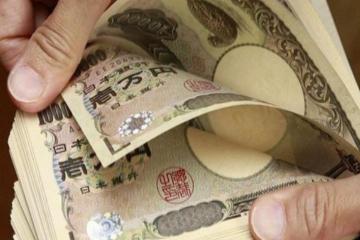Dollar Tops 155 Yen; January Rate Hike on the Table
Advertisements
The recent decision by the Bank of Japan (BoJ) to maintain its current interest rates, voting 8-1 in favor, signifies a notable pause in its monetary tightening approachThis stance marks the third consecutive time the central bank has opted not to raise interest rates, indicative of a cautious strategy amidst the backdrop of fluctuating economic indicators and political expectationsIn the aftermath of this announcement, the Japanese yen dipped to a low of 155 against the US dollar, while the Nikkei 225 index futures bounced back, climbing over 1% in a brief surge, thus recovering some of its previous losses.
The Bank of Japan's analysis suggests a gradual increase in core consumer price inflation (CPI), which has recently hovered between 2% and 2.5%. Such figures imply that while economic growth is anticipated to remain above potential levels, the outlook remains plagued by uncertainties surrounding inflation and economic stability
The central bank emphasized the importance of scrutinizing the impacts of foreign exchange rates and market fluctuations on Japan's economy and pricing, given the heightened unpredictability of these factorsAs the landscape shifts, the central bank is recalibrating its strategies to adapt to these emerging realities.
One crucial element highlighted by the BoJ is that shifts in corporate wage structures and pricing behaviors have the potential to amplify the influence of foreign exchange variability on inflation, contrasting with previous trendsMoreover, the central bank recognized significant uncertainties tied to the interplay between its monetary policy and market responses, which have escalated in complexity.
In a detailed report concerning its monetary easing policies, the Bank of Japan reiterated its commitment to achieving a stable 2% inflation rateThe necessity of maintaining flexibility in policy formulation was stressed; it should not rule out any specific measures in contemplating future monetary actions
- All Three Major U.S. Indices Rise Over 1%
- Stable Trends in the Global Commodity Market
- Learning from the Historical Lessons of Protectionism
- Micron Shares Plunge 16% on Weak Forecast
- Do AI Creators Regret Spending $200 on Sora?
The report noted that since 2016, long-term interest rates have declined by about 1 percentage point, and the extensive monetary easing strategies have positively influenced GDP growth by approximately 1.3% to 1.8%, alongside CPI impacts ranging from 0.5 to 0.7 percentage points.
Political ramifications play a critical role in the Bank of Japan's decision-making processEconomist Taro Kimura from Bloomberg Economics pointed out the potential political costs the BoJ could face were it to initiate another rate hikeThe backdrop of a recent fiscal stimulus plan, approved by the parliament, casts a long shadow over any monetary tightening discussionsPolitical pressure exists both from the ruling party and the opposition; significant figures like Yuichiro Tamaki, the leader of the Democratic Party for the People, have openly criticized the central bank's stance, arguing the merits of maintaining a low interest rate environment in light of stagnant wage growth relative to the rising cost of living.
Furthermore, the comments from prominent politicians like Shinzō Abe, who have engaged in dialogue with BoJ Governor Kazuo Ueda, underline a cautious navigation of the political waters surrounding monetary policy adjustments
The fear among policymakers is that an ill-timed rate hike could jeopardize their political capital, especially if it contravenes public sentiments around economic stability and wage growth.
Looking ahead, Kimura anticipates that the Bank of Japan might take a more assertive stance during its January 2024 meeting, as legislative concerns shift from narrowly defined lending costs to a broader consideration of rising consumer pricesThis transition could afford the central bank greater maneuverability in its policy decisionsThe evolving economic environment suggests that pursuing a pathway towards normalization of monetary policy has become increasingly feasible, sufficiently supported by indicators demonstrating dynamism in wages and pricing.
Furthermore, the impending press conference led by Kazuo Ueda is keenly awaitedAnalysts suggest that Ueda may signal an inclination towards action in January, given the mounting inflationary pressures articulated in the latest CPI reports and the results of quarterly surveys
Moreover, preliminary indications suggest that negotiations for significant pay raises could unfold in the upcoming shuntō (spring wage negotiations), further solidifying the grounds for potential policy shiftsThe persistent depreciation of the yen also exacerbates inflationary risks, necessitating proactive measures from the central bank to align market expectations with long-term objectives.
Against this backdrop, the ebb and flow of the yen has caught the attention of various analystsFollowing the BoJ's recent announcement, the yen breached the pivotal 155 threshold against the US dollar—a significant marker suggesting further potential for depreciationThe warnings issued by strategists, including those from Bank of America and Sumitomo Mitsui Trust Bank, indicate that failing to implement rate hikes within the next few months could undermine confidence in the Bank of Japan’s capability to maintain a credible monetary stance

post your comment